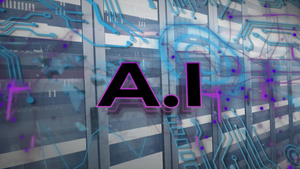Data Centers Predicted to Drive Liquid Cooling MarketData Centers Predicted to Drive Liquid Cooling Market
Revenue for the technology is expected to top $3 billion by 2026.
December 12, 2022

Enthusiasm for liquid cooling is being driven by data center operators, particularly cloud service providers. Revenue for the liquid cooling market could top $3 billion by 2026, with a 50.4% compound annual growth rate (CAGR). That CAGR extends from 2021 to 2026.
That’s according to Data Center Thermal Management Market Analysis - 2022, recently issued by Omdia (whose parent company, Informa, is also parent of Data Center Knowledge).
“Fueled by the need to run compute-intensive workloads, cloud service providers’ investment has had a particularly positive impact on the market’s growth potential,” said Dr. Moises Levy, senior principal analyst for data center power and cooling for London-based Omdia.
Improving sustainability
What’s driving the trend? Among other things, sustainability. Increasingly, sustainability is a key driver in data center design, build, and operations, with several companies pledging 100% renewable energy and net zero emissions in their operations in the foreseeable future.
Liquid-cooled servers require less water to keep them cool than air-cooled, because liquid is a more efficient circulator of heat.
Liquid-cooled data centers are said to be quieter than air-cooled, because they require fewer fans. With noise being one of the criticisms of data centers, operators are looking for ways to dampen them.
Other factors include improving the power-to-cooling ratio, eliminating the need for complex airflow management, close control of electronics temperatures, enhancing opportunities for heat reuse, and helping to achieve sustainability goals linked with emissions,” Dr. Levy said. “Liquid cooling is also space-effective for locations where physical space is a limitation,” he added.
Most cloud service providers are already implementing liquid cooling in some fashion, ranging from proof-of-concepts to actual deployments, Dr. Levy said, noting that Microsoft, in particular, has been pretty outspoken about its use of liquid cooling technologies in its data centers. In addition, companies such as Equinix and Intel have been experimenting with liquid cooling technologies.
Liquid cooling’s next phase
Beyond liquid cooling is immersion cooling, where servers are completely immersed in fluids such as dielectric mineral oils. While the technology is nascent, it’s been attracting investment attention, such as a $28 million Series C funding round for Green Revolution Cooling earlier this year.
“Immersion liquid cooling is the most promising technology based on thermal performance,” Dr. Levy said.
Pooled together, market revenue—comprising both direct-to-chip and immersion—is projected to pass $3 billion by 2026, excluding cryptocurrency mining applications, Dr. Levy said.
That’s not to say liquid cooling is a panacea, Dr. Levy warned. “Liquid cooling systems may or may not be the ideal solution for a data center project,” he said. The selection of liquid cooling instead of air-cooling systems have to do with a variety of factors, including specific location, climate (temperature/humidity), power densities, workloads, efficiency, performance, heat reuse, and physical space availability, he said.
Still, a combination of air-cooled and liquid-cooled systems will likely become commonplace in data centers in the near future, driven by energy consumption concerns and sustainability goals, Dr. Levy said.
About the Author
You May Also Like







